
March 2024
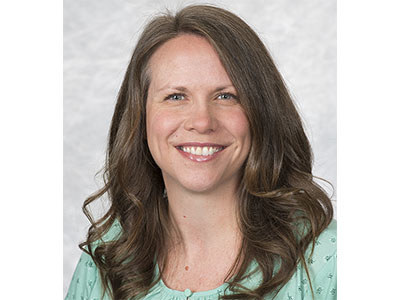
Personalized approaches to dementia care: HonorHealth is tailoring treatments for individual needs
Imagine a world with a better understanding of the complexities of the human mind. Understanding that leads to a personalized approach to the treatment and care of patients with dementia — many of whom you probably know and love. Treatment that not only alleviates the symptoms of dementia but also reconnects individuals with the essence of who they once were.
The Neurology team at the Bob Bové Neuroscience Institute does just that by collaborating with the HonorHealth Research Institute to develop and test the latest treatments for some of the most serious health challenges facing the human brain.
Defined as a decline in mental function that is significant enough to interfere with daily activities, dementia can be characterized by changes including memory loss, impaired reasoning, disorientation, difficulties speaking, mood change and even changes in personality.
While Alzheimer’s disease is the most common cause of dementia in older adults, there can be other causes, some of which are reversible, including vitamin deficiency and depression.
Cassie White, PsyD, neuropsychologist at HonorHealth Neurology, helps her patients understand the difference between normal aging and what could be signs of dementia.
“Normal aging can lead to occasional forgetfulness, just like stress or a bad night’s sleep,” explains Dr. White. “Your brain isn’t floating around in the fountain of youth; it ages, too! It is normal to walk out of the mall and forget where you parked your car. Forgetting how you got to the mall, that is NOT normal.”
Forgetfulness or other cognitive issues, beyond what would be expected with age, could be an early sign of dementia known as mild cognitive impairment. Individuals with this condition are generally able to manage their day-to-day tasks but may need to devote more energy to doing so. If these cognitive impairments lead to needing assistance to perform daily tasks, it may become a dementia diagnosis.
“If you are concerned about your memory and make lists and use calendars to help you remember things that you might forget, that is a good sign. It means those planning and critical thinking skills are still in play,” shares Dr. White.
The team at HonorHealth weaves together the threads of cutting-edge science, the power of technology and the enduring force of empathy. We constantly work to create a narrative where dementia, once considered an irreversible journey, is met with kindness and groundbreaking care that illuminates the path towards rediscovery and connection. Our work is a testament to the resilience of the human spirit and the boundless potential of compassionate innovation.
Are you worried about memory issues for yourself or a loved one? Make an appointment to see your primary care provider and ask for a brief cognitive assessment. Based on your results, your doctor will assess the need for a follow-up appointment with a neurologist or neuropsychologist.
![]()
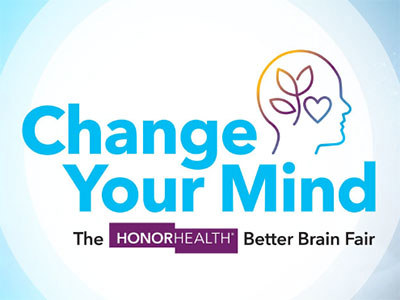 Change your mind: HonorHealth Better Brain Fair
Change your mind: HonorHealth Better Brain Fair
You’re invited to attend our first Change Your Mind: The HonorHealth Better Brain Fair, showcasing information from HonorHealth physicians, clinical leaders and local community organizations to preserve and improve your brain health.
This is a free, in-person two-day event, running from 1 to 6 pm on Friday, March 22, and 9 am to 2 pm on Saturday, March 23 at the Bob Bové Neuroscience Institute on the Scottsdale Osborn Medical Center campus.
The HonorHealth Better Brain Fair is designed is to provide knowledge and access to practical tools and resources to enhance brain health and overall well-being. It’s visit-friendly to those with neurological disorders, their caregivers and loved ones.
Some exclusive features include:
- Presentations on neurological disorders and brain health
- Interactive Q&A sessions
- Live music from local performers
- Brain health seminars (held indoors in the first-floor conference room)
The outdoor stage will host brain demonstrations and musical performances, and there will be 35 brain-health exhibitors along a tented fairway.
Two food trucks will serve Blue Zones-inspired menus with al fresco dining available. Free parking is available in the parking garage adjacent to the Institute.
Registration is requested. Sign up at my.honorhealth.com/brainfair2024
Download the HonorHealth Better Brain Fair flyer!
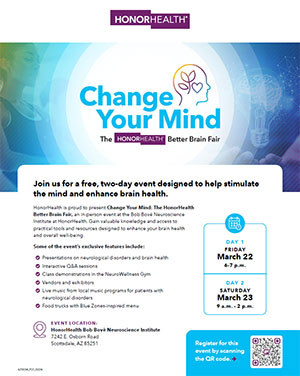
![]()
 We "heart" you!
We "heart" you!
by Ankur Karnik, MD and Shalini Singh-Karnik, MD
According to the Centers for Disease Control and Prevention, heart disease stands as the leading cause of death in the country, claiming approximately 700,000 lives each year. Among these fatalities, around 600,000 are attributed to coronary artery disease (CAD), making it the most common form of heart disease.
At HonorHealth, we are expanding to provide the most comprehensive heart care program for our patients and our community.
CAD is characterized by the narrowing or blockage of the coronary arteries, impeding blood flow to the heart muscle.
Risk factors for CAD include:
- Hypertension
- Smoking
- Diabetes mellitus
- Obesity
- High cholesterol levels
- Poor dietary habits
- Tobacco exposure, which can double your risk of CAD
Recognizing the symptoms of underlying coronary disease is crucial for early intervention. These symptoms include:
- Chest pain or tightness during physical exertion, often radiating to the arm
- Fatigue
- Shortness of breath
- Atypical symptoms like shortness of breath and indigestion occur in women
Early detection and management of these symptoms are essential for improving outcomes and reducing the burden of cardiovascular diseases. It's worth noting that up to 90 percent of cardiovascular disease cases could potentially be prevented by avoiding established risk factors. Therefore, promoting lifestyle modifications and regular health screenings remains paramount in mitigating the prevalence of heart-related ailments and enhancing overall public health.
When discussing exercise to mitigate the risk of heart disease, it's crucial to consider three key aspects: the required duration of exercise, the preferred type of activity and the optimal timing.
Duration of Exercise: The American Heart Association advises aiming for 150 minutes of moderate-intensity exercise weekly, equivalent to about 30 minutes per day over five days. This serves as a fundamental guideline for promoting cardiovascular well-being.
Type of Activity: Exercise preferences can vary widely among individuals. The key is to find activities that bring joy. Whether it's brisk walking, cycling, swimming, dancing, or engaging in sports, the emphasis should be on selecting activities that evoke positive emotions and motivation to sustain regular participation.
Timing of Exercise: The ideal timing for exercise depends on personal schedules and preferences. Some may find mornings ideal for workouts, while others may prefer midday or evening sessions.
Consistency is paramount, so it's essential to choose a time that fits seamlessly into daily routines and promotes adherence to the exercise regimen.
Moreover, incorporating movement throughout the day is beneficial for overall health. In Ayurveda, a traditional medical system from India, it's recommended to practice "śatapāvalī" or taking 100 steps after meals. This practice aids digestion, enhances metabolism and helps regulate blood pressure and blood sugar levels. Integrating such habits into daily routines complements structured exercise sessions and contributes to enhanced cardiovascular health.
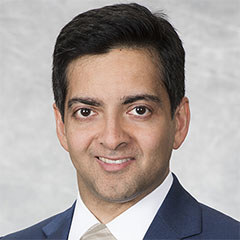 |
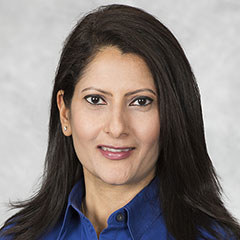 |
| Ankur Karnik, MD | Shalini Singh-Karnik, MD |
![]()
 "April Food's Day" kicks off Desert Mission Food Bank food drive
"April Food's Day" kicks off Desert Mission Food Bank food drive
One in six adults in the US depends on food banks, and demand is increasing due to inflation and fewer donations. HonorHealth Foundation and BOK Financial have partnered for an April Springtime Food Drive to stock up the shelves at Desert Mission Food Bank. The community is encouraged to drop off cans + non-perishable food at Desert Mission Food Bank or one of four BOK Financial Valley Locations.
BOK Financial has donated to HonorHealth Foundation since 1998 with more than $260,000 in lifetime giving. BOK provides volunteer and financial support to a variety of organizations that work tirelessly to serve the most vulnerable citizens in our community by meeting their basic needs through providing direct services addressing issues such as poverty, hunger, healthcare, housing and safety.
Visit the April Food's Day website to learn how you can support the Desert Mission Food Bank.